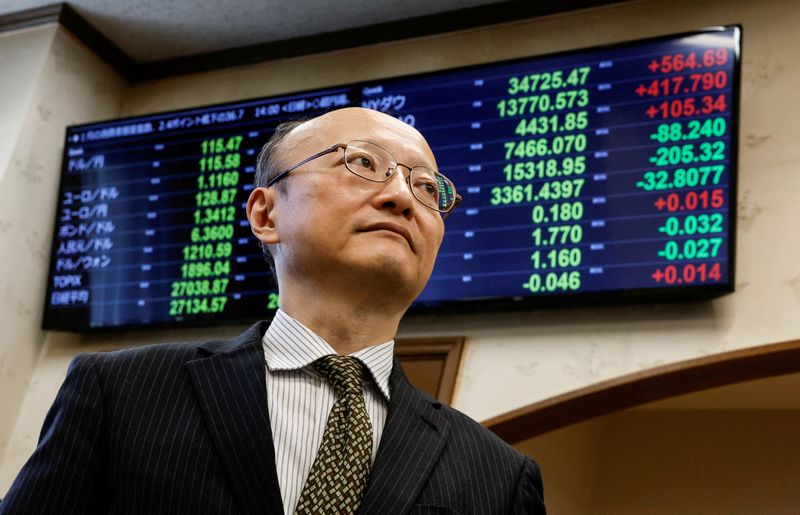By Tetsushi Kajimoto
TOKYO (Reuters) - Japan's top financial diplomat on Friday suggested the central bank may tweak its approach to monetary stimulus at its next policy meeting, due to "signs of changes" in corporate behaviour on wage growth and price rises.
In rare remarks on monetary policy, Masato Kanda, vice finance minister for international affairs, said he expects the Bank of Japan (BOJ) to make a judgment on policy by analysing the conditions and outlook for prices at every review.
The next meeting is on July 27-28.
Kanda's remarks came hours after government data showed core consumer inflation grew 3.3% in June - above the BOJ's 2% target for the 15th straight month - and as Japanese firms offered the biggest pay hikes in three decades this year.
Looking at the underlining trend of prices and wages, there are signs of changes in the corporate wage- and price-setting behaviour that has been in place during the period of deflation, Kanda told Reuters.
"Various expectations and speculations are spreading about the possibility of some kind of tweak to monetary policy," he said.
The BOJ, under Governor Kazuo Ueda's predecessor Haruhiko Kuroda, launched an unprecedented round of monetary stimulus in 2013, pledging to inflate the economy to meet a 2% inflation target in two years. That has been extended ever since with the inflation goal proving a tall order.
The BOJ is leaning towards keeping its yield control policy unchanged at next week's meeting, five sources familiar with its thinking said, as policymakers prefer to scrutinise more data to ensure wages and inflation keep rising.

But there is no consensus within the central bank on how soon it should start phasing out its massive stimulus, which could make next week's decision a close call.
Earlier, the Jiji newsagency reported Kanda as saying he was watching the currency market with a sense of urgency after the yen fell versus the dollar, warning that authorities will consider all options to deal with excess volatility in the currency market. The dollar rose 1.3% at a nearly two-week high of 141.91 yen.